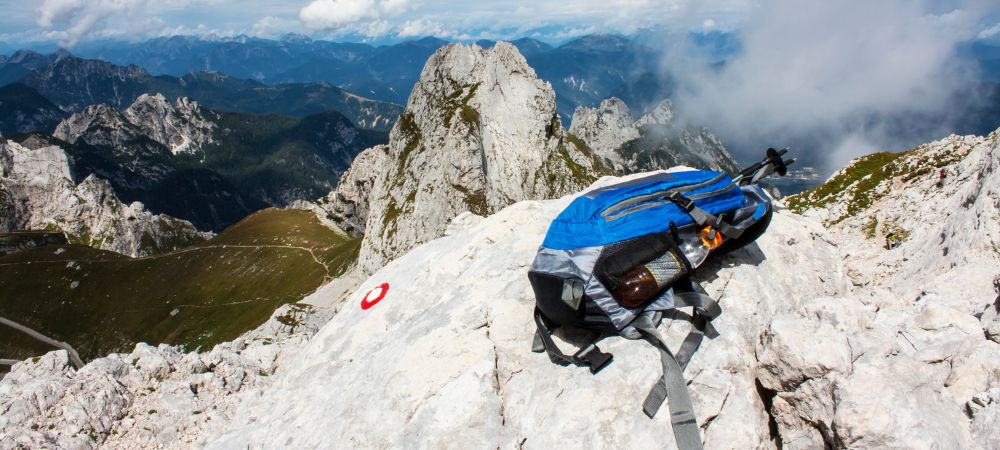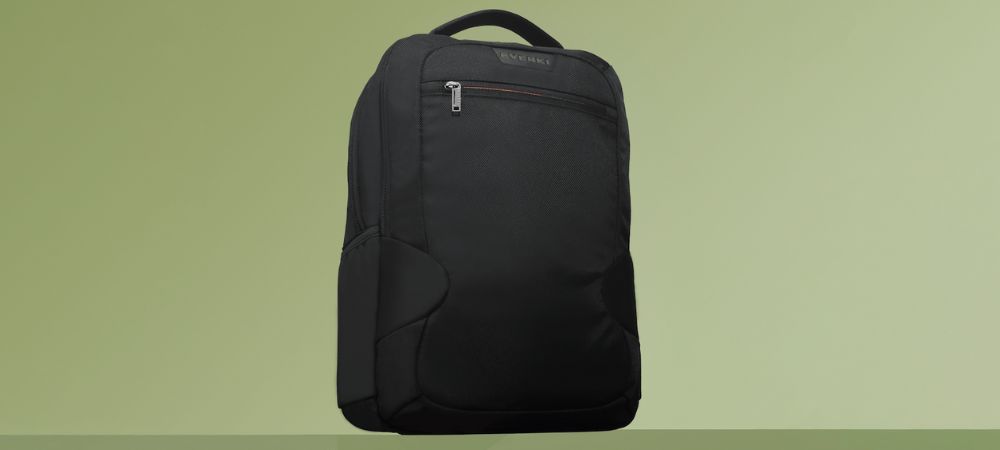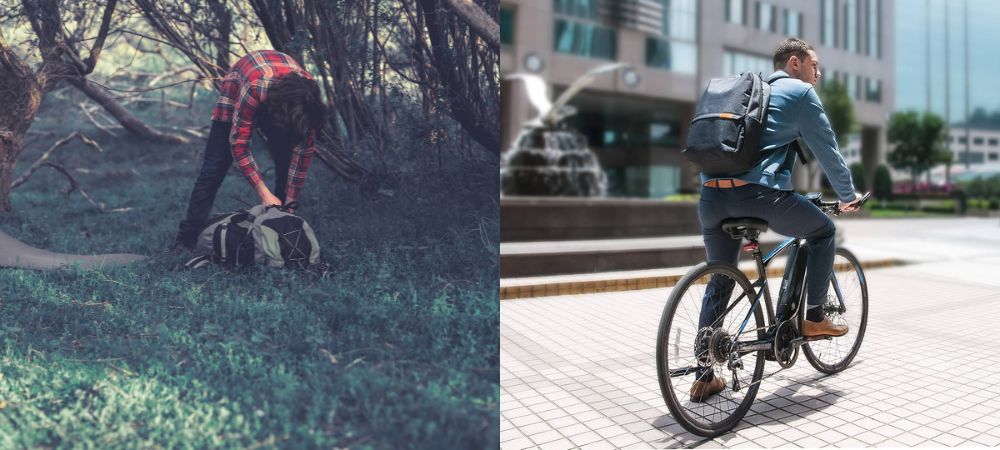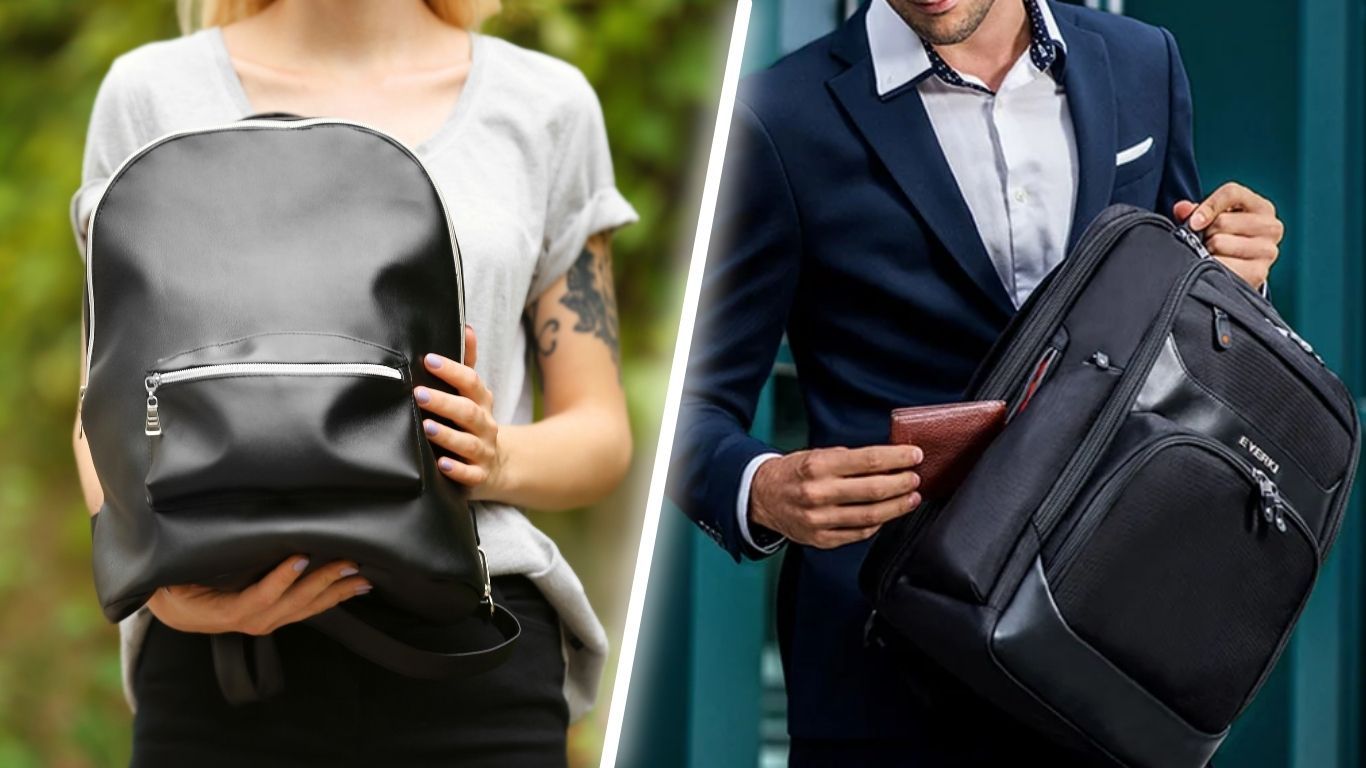Rucksack vs. Backpack: Differences and Uses
Summary
This article compares rucksacks vs. backpacks, focusing on their design, functionality, and uses. Rucksacks are durable and spacious, best for vigils in the outdoors, including hiking and camping. Backpacks are versatile, comfortable to wear, and organized, making them perfectly serviceable for a daily commute and light travel. Discover which bag is right for you and find the best among the Everki collection.
Think of getting ready for a day that includes commuting to work, hiking a scenic trail, or embarking on a weekend getaway. Immediately, one question arises: rucksack vs backpack which one fits the bill? While both serve the purpose of carrying your belongings, their design, functionality, and practical uses set them apart. Knowing the difference between a rucksack and a backpack will help you choose the right bag for your lifestyle and needs.
The decision of which type to use goes beyond aesthetics; it's about comfort, durability, and purpose. This guide looks into whether a rucksack or backpack for travel fits you better, examines unique features, and breaks down the key differences.
What is a Rucksack?


A rucksack is a spacious and strong bag derived from the German word "Ruck," which means back. It was designed for taking on outdoor adventures. Different from all backpacks, rucksacks usually come with a flap-over top kept in place by buckles or drawstrings and sometimes with external pockets for convenience.
What is a rucksack used for?
Rucksacks are perfect for rough activities such as hiking, trekking, or even outdoor camping. Their strong build and high capacity ensure that they are perfectly capable of carrying bulky items, gear, and essentials in challenging environments.
What is a Backpack?


A backpack is designed for daily use, being a versatile bag with zippered compartments, padded straps, and an ergonomic design to fit most activities.
From students to commuters and travelers, all find practicality and organization in backpacks. Be it books, gadgets, or a day's supply of anything, the backpack has got you covered. There are different types of backpacks, such as laptop bags, travel backpacks, and casual daypacks; each serves different purposes.
| Feature | Rucksack | Backpack |
| Design | Flap-top closure with drawstrings and buckles, often with external pockets. | Zippered compartments, sleek and minimalistic design. |
| Comfort | Thick straps, less padding, may strain shoulders on long trips. | Padded, ergonomic straps for maximum comfort. |
| Capacity | Larger, suitable for carrying bulky and heavy items. | Varies in size, typically compact for daily essentials. |
| Durability | Extremely durable, ideal for tough environments. | Durable enough for regular use but less rugged than rucksacks. |
| Style | Rugged, vintage, outdoor-oriented look. | Modern, professional, and versatile designs. |
| Common Use | Camping, trekking, survival scenarios. | School, work, travel, gym, or casual use. |
Key Differences Between Rucksacks and Backpacks
When comparing a rucksack vs. backpack, these are the primary distinctions:
- Design and Structure
Rucksack: This is further characterized by having a flap-top closure, external pockets, and a generally rugged look.
Backpack: The bag has zipper compartments designed in a sleek, modern manner to make accessing its contents quick and easy. - Capacity
Rucksacks are larger in capacity and can be used for longer trips and bulkier gear.
Backpacks come in various sizes. Learn about the average size of backpack to match your specific requirements. - Pockets and Organization
Rucksacks prioritize external storage to ensure that things used very often are easy to access.
Where backpacks do tend to excel is in internal organization, with separate compartments for gadgets, books, and smaller essentials. - Comfort and Ergonomics
Rucksacks have thick, sturdy straps but may lack the padding needed for long hours of use.
All varieties of backpacks have padded straps, besides being so ergonomic in structure to reduce all sorts of strains on the shoulder and back. - Material and Durability
Rucksacks are of heavy-duty materials, such as leather or canvas, intended for use under the most severe conditions outdoors.
The materials used in backpacks are lightweight, synthetic ones, such as nylon or polyester, making them perfect for daily use. - Style and Aesthetics
Rucksacks have that classic look, kinda rugged for outdoorsy people.
Sleek, modern designs make backpacks versatile for casual, professional, or travel use.
Practical Uses
Rucksack
- Good for outdoor activities such as hiking, trekking, and camping.
- Well-suited for carrying long or bulky items across rough terrain.
- Ideal for those looking for durability with a classic look that is adventurous.
Backpack
- Great for daily commuting at school or at work.
- This is a travel case with compact and organized storage.
- It is suitable for carrying gadgets, as it has dedicated compartments that are available in different types of backpacks.
Which is Better: Rucksack or Backpack?


When to Choose a Rucksack
- Great for camping or other outdoor activities, or hard-core trips requiring heavyweight bags.
- Perfect for carrying bulky gear such as camping equipment or clothes.
- Large capacity with flap-top closure and external pockets for easy access.
- Ideal for anyone who prioritizes durability over extended comfort.
When to Choose a Backpack
- Ideal for urban use-commutes, errands, and light travel.
- It has been designed with compartments for storing gadgets and essentials in a tidy manner.
- Provides comfort with padded straps and ergonomic designs.
- Matches the average size of a backpack for work, school, or casual travel.
Pros and Cons:
Rucksack
Pros: Rugged, durable, and spacious.
Cons: Can feel bulky and lacks modern conveniences like padded straps.
Backpack
Pros: lightweight, comfortable, and can be used for several activities.
Cons: Not as durable in extreme outdoor conditions as rucksacks.
Factors to Consider When Choosing
- Purpose
If you are going to be outdoors for camping or trekking, a rucksack would be better.
A backpack will be more appropriate for everyday use or traveling light. - Comfort
Rucksacks are known to stress shoulders when carried for long periods because they lack padding.
The designs of the backpacks are very ergonomic for comfort all day long. - Style
Rucksacks are perfect for those who go in for a more reclusive, raw, and vintage kind of look.
The designs for backpacks are sleek, balancing functionality and style. - Storage Needs
Rucksacks allow for more space for bulky gear.
Backpacks provide better organization and gadget-friendly compartments.
Conclusion:
It is totally dependent on lifestyle and activities in order to choose between the rucksack vs. backpack. This will include, if anything, a really strong and rather capable rucksack for great outdoor action. For comfort and better organization, if your aim is to deal with everyday life, a handy backpack will remain your first companion.
Whether it is a choice between a rucksack or a backpack for travel or searching for the best bag to use every day, understanding these differences ensures that you pick up the perfect travel companion. Consider your options and match them against your needs for a more enjoyable next adventure or commute. See your options at Everki, where quality meets functionality, and make your next adventure or commute more fun.
FAQs:
Which is more comfortable for long use, a rucksack or a backpack?
Backpacks are much more comfortable because of the padding of their straps and their overall ergonomic design reduces stress on the shoulders and back after extended periods.
Are rucksacks better for carrying heavy or bulky items?
Yes, the rucksack is designed for heavier loads and bulky items and is meant for outdoor work like hiking and trekking.
What is the biggest downside of using a rucksack?
Rucksacks can be bulky and lack modern organization features such as compartments, which might be a bit inconvenient for everyday or gadget-heavy use.
Can I use a backpack for rugged outdoor activities?
While backpacks can handle light use outdoors, in most cases, they are less hard-wearing or capacious, since rucksacks are supposed to be custom-fit for usage in harsh terrain.


